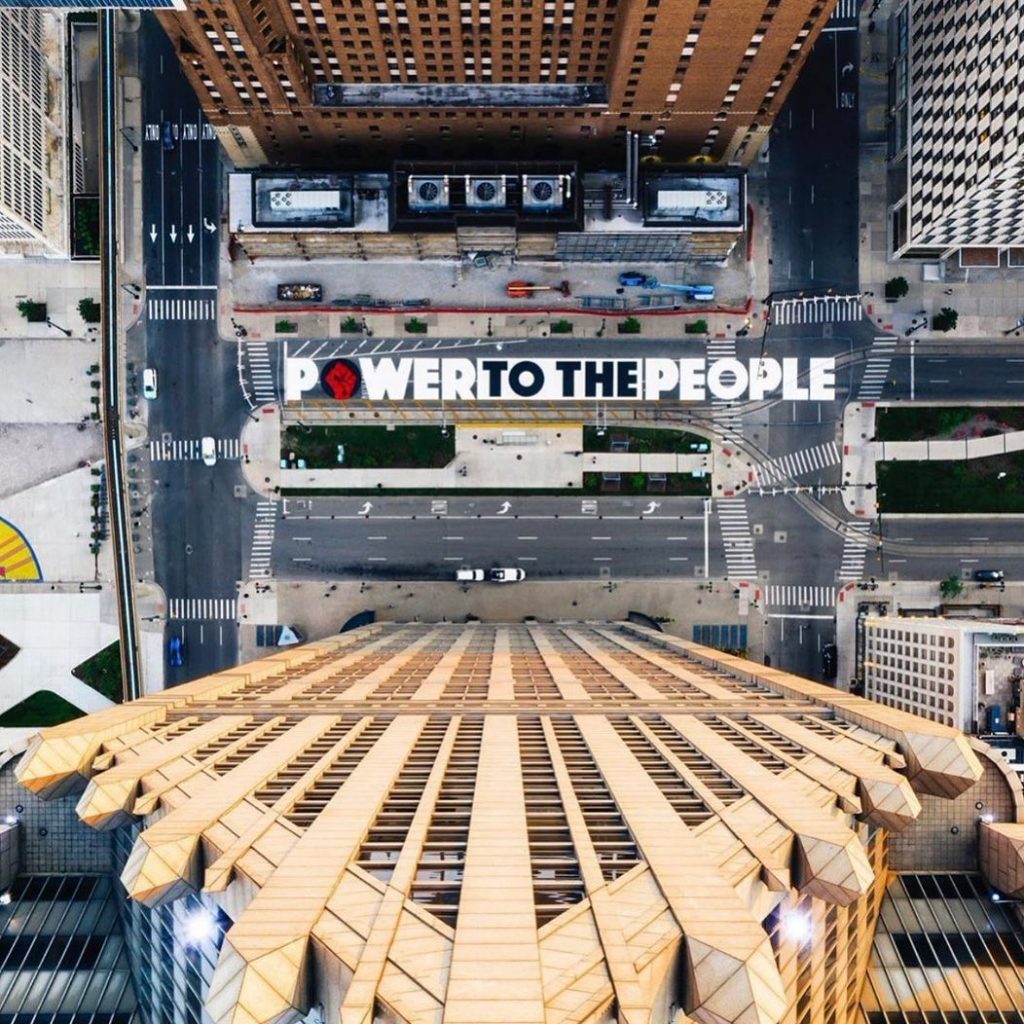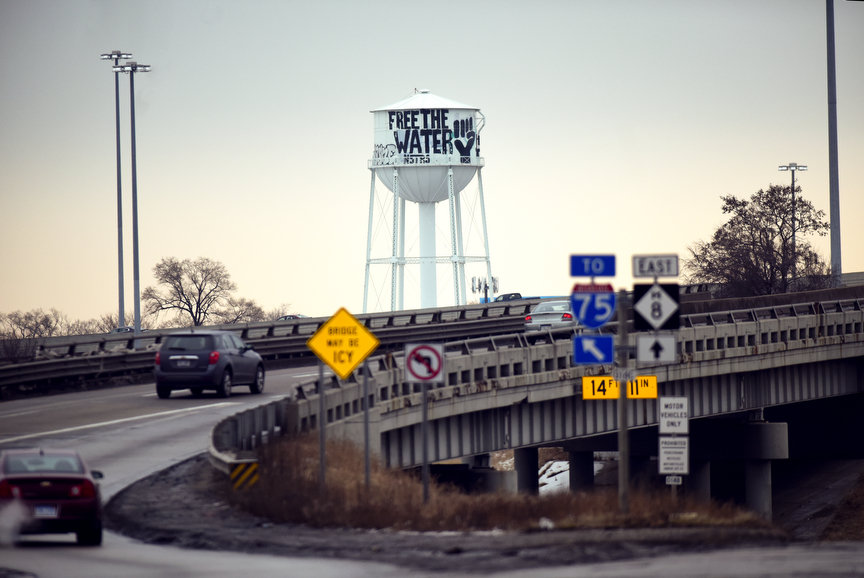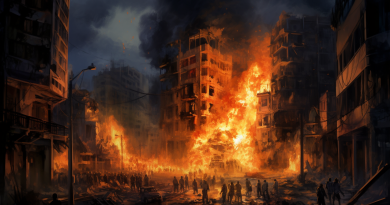Just When We Thought There Was Nothing Left To Gentrify, They Gentrified… Protest Speech?
A big to-do was made about Dan Gilbert’s effort to paint “POWER TO THE PEOPLE” in prominent, white and black block lettering on lower Woodward Avenue in downtown Detroit. A red fist is featured in the first “O.” The monumental display of protest statements has been a common thread nationwide in the aftermath of George Floyd’s killing by since-charged Minneapolis police officer Derek Chauvin in May. New York City even announced plans last week to paint “Black Lives Matter” on Fifth Avenue in front of Trump Tower. But one interesting critique of the protest movement has been that as we’ve mainstreamed protest, we’ve sidelined people who have been protesting this all along.
One need not think further back than the case of Detroit artists Dale W. Lucka and Antonio R. Cosme, who scaled a water tower in Highland Park in 2015 and painted a large black power fist with the words “FREE THE WATER.” The artwork was a protest against Detroit’s wave of water shutoffs, which have disproportionately affected the city’s poorest residents and have even elicited condemnation from the United Nations, which says it violates citizens’ basic human rights. While avoiding jail time for the stunt, Cosme and Lucka had no shortage of legal woes from the production. Around this same time, career coaching professionals were advising advocates following the Black Lives Matter movement to avoid mention of it on social media if they wanted to avoid alienating potential employers.

The protest movement now been mainstreamed, we now see Fortune 500 companies coming out with statements on George Floyd and Black Lives Matter that range from vacuous to subversive. This is partially a product of the turmoil of the times we live in. Science and reason have been trumped, pun perhaps intended, by dogma of identitarianism and fearmongering over the Browns and the Blacks. Companies realize that if they fall into the same trap of far-right ultra-nationalism, it’ll be terrible for trade, terrible for marketing, and terrible for business overall. It’s also a product of shifting national demographics. These shifts happen on a generational timeframe. But, as we’re still stuck in some bizarre beast of neoliberal late capitalism, it isn’t as though suddenly Dow realizes that it’s time to stop killing the planet, but rather, it’s going to keep killing the planet, but with a gay CEO.
The irony of the internal conflicts was not lost on critics of the Woodward Avenue artwork. Cosmé quoted a Detroit News report in a public Facebook post, saying that “…predatory [mortgage lending] practices, of which Quicken is one of many perpetrators, led to 56 percent of Detroit mortgage-foreclosed homes between 2005 and 2014 becoming blighted, demolished or foreclosed for nonpayment of taxes.” That economic justice and racial justice are so intrinsically linked because of the stark economic divides along racial lines means that a statement of solidarity with the movement from a company like Quicken rings hollow.
There is value in recognizing the degree to which times change. There is also value in understanding incremental improvements. Twenty years ago, it would have been unthinkable to see a leading company temporarily change their marketing materials to a rainbow flag for the month of pride. Now, it’s damn near required. But it is never enough if we aren’t retroactively giving credence to the voices that were punished for starting many of these conversations in the first place. It is similarly never enough if we are elevating mainstream, diluted messages from the corporate echo chamber instead of the very voices we should be working to amplify– of women, of black, indigenous, latinx, and other people of color. Of the people who are starting these conversations to begin with.



